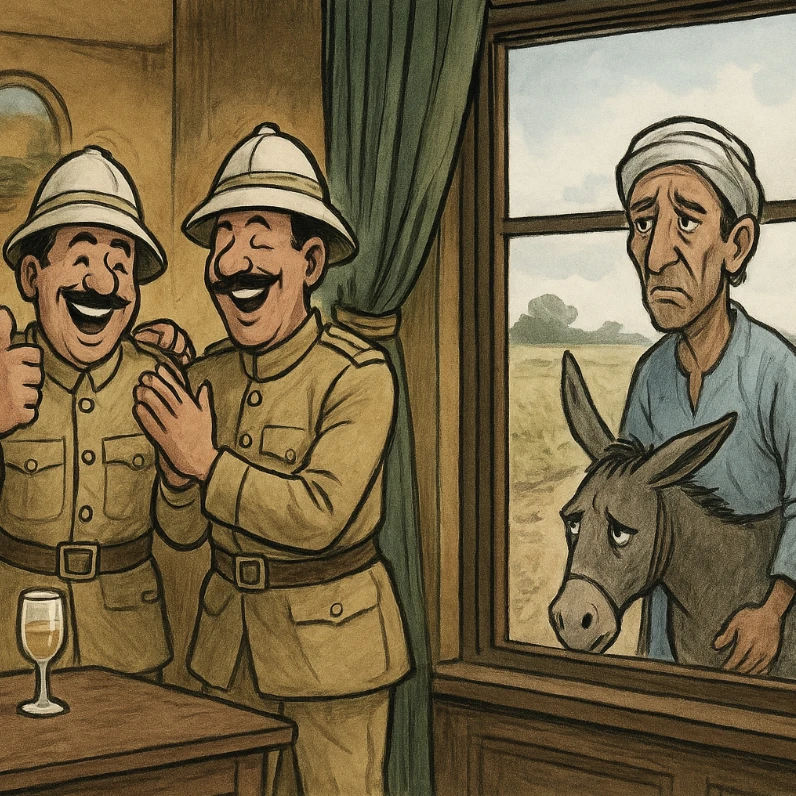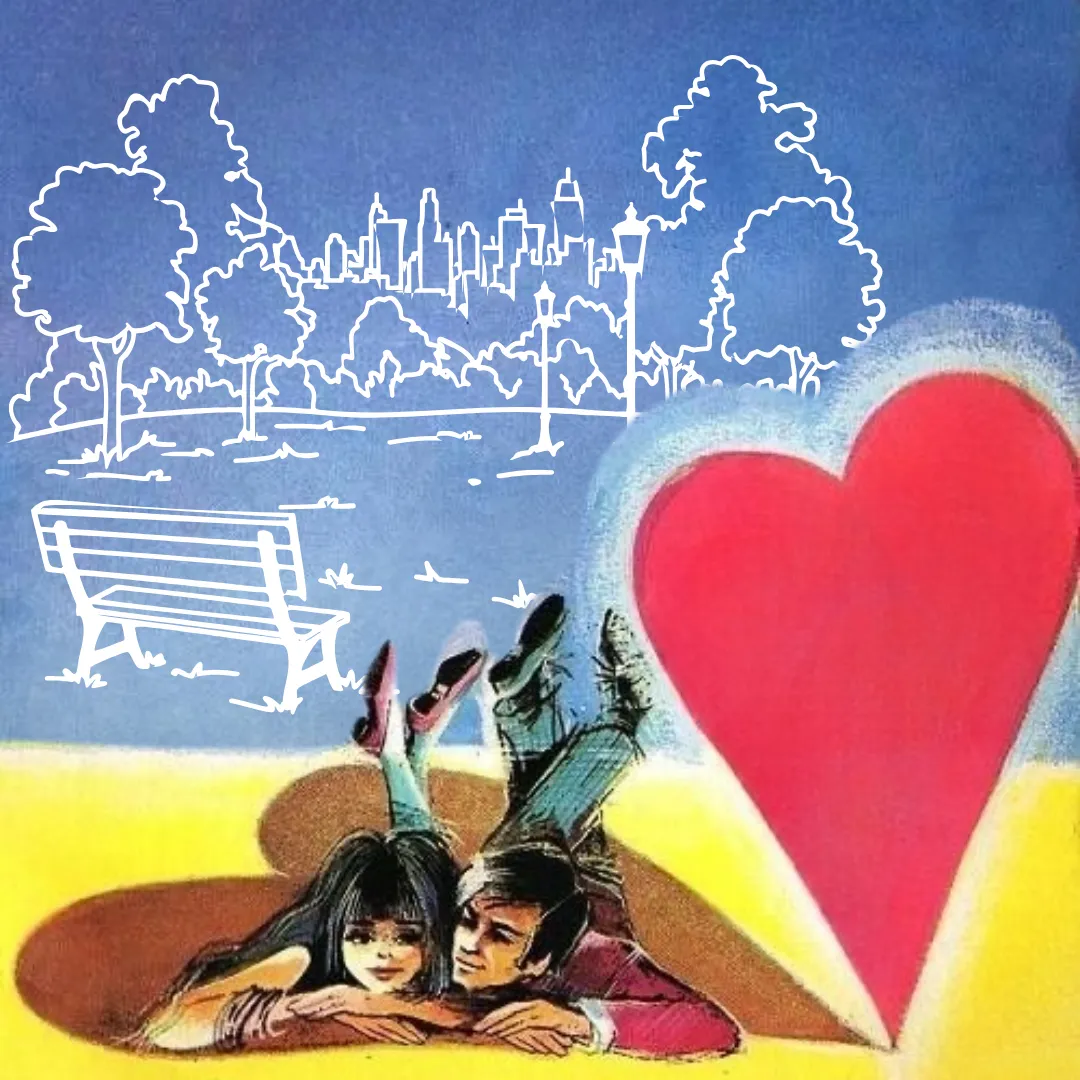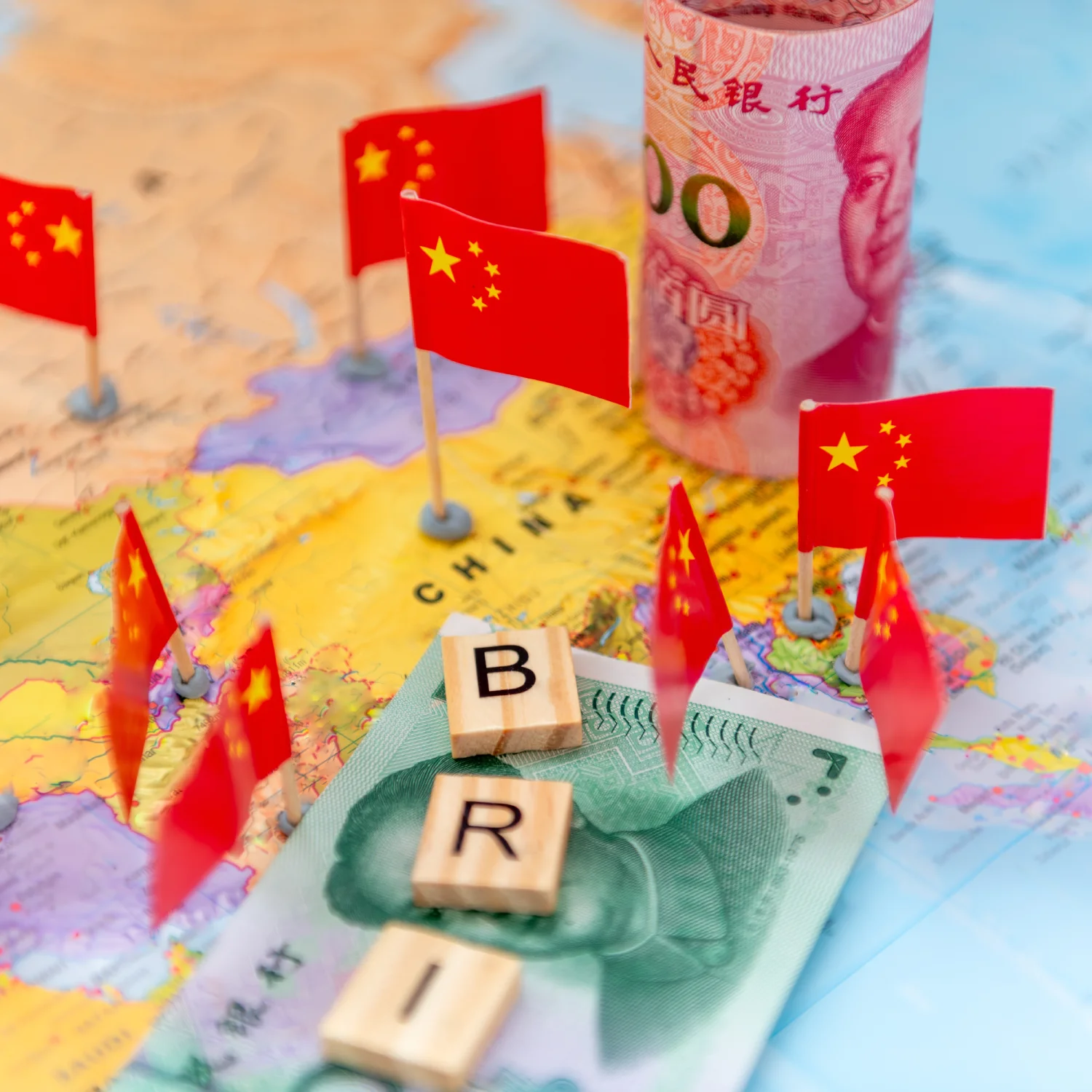This month, Pakistan marked 78 years as an independent, sovereign nation. For the first time in several years, Independence Day celebrations had some proximate justification: Pakistan scored a number of military and diplomatic wins this year, from the successful military defence against India in May, to the thawing of relations with the United States and warming of relations with Iran.
While not particularly meaningful to the population at large, the government can also point to improvement on several economic indicators, including an improved credit rating, a rallying stock market index and a current account surplus, thanks to record foreign remittances. It is no wonder that the country’s leaders spent much of 14th August engaged in a self-congratulatory Presidential Award ceremony that saw civil and military decorations handed out like participation trophies at a little league game to a quarter of the cabinet and top military brass.
Qui est l'État?
It is more than a little ironic that this kind of award ceremony was held on Pakistan’s Independence Day. Millions of Pakistanis live in poverty and toil away without a safety net, bearing financial burdens that render them no freer than they would be under indentured servitude. While the day-to-day struggles and sacrifices of these citizens remain unseen and unaddressed, the already prominent and powerful figures in government honoured one another just for doing their jobs.
The optics of this beg the question: Who is this country for? The people of Pakistan may have won freedom from the yoke of British rule, but did they ever really gain independence from colonialism?
The country’s leadership may have inadvertently answered this question themselves when they published an official Independence Day advertisement featuring the current political and military heads, but omitting the founding fathers, including the Quaid. Moreover, while a cross-section of the country’s ethnicities were depicted, tellingly, five of the seven professions honoured in the advertisement also represented state institutions: the armed forces, the judiciary and somewhat perplexingly, PIA. This is a government of the government, by the government, for the government. The people are along for the ride.
This tone-deaf behaviour is just one of many other practices and actions of Pakistan’s leadership cadres—political, bureaucratic and military—that make little rational sense when viewed from the lens of traditional good-governance. The normative model of good governance that comes to mind would be characterised by some form of consensus-based decision-making in service of the community or general public interest, underpinned by transparency in processes and accountability on outcomes. A government working on behalf of its citizens would primarily optimise usage of resources for the benefit of the community—both present and future—and would thus consume and distribute resources and their outputs in a sustainable and equitable manner. Above all, the function, role and responsibility of the government would be in service of catering to the needs of citizens specifically, rather than the more conceptually framed ‘state’.
Even authoritarian governments that lack transparency and accountability—and who concentrate power, control decisions and suppress dissent—profess to represent and serve the national interest of the people. Turkey’s Mustafa Kemal Ataturk and Singapore’s Lee Kuan Yew both ruled in an authoritarian manner, but legitimately worked to raise the living standards and improve the well-being of their citizens. This is why many in Pakistan often express support for dictatorial strongmen to come in and fix the country.
Yet the governments in Pakistan, whether democratic, military or hybrid, have never really exhibited a citizen-centric approach. The governance approach in Pakistan remains far closer to the colonial model left by the British, than to the vision for the egalitarian, tolerant, welfare state that Jinnah envisioned.
What To Expect When You’re Colonised
At a superficial level, colonialism is the control and domination of a native population by an external power. Colonists view themselves as superior—racially, ethnically, culturally and technologically—to the indigenous population, and invariably end up subjugating the locals and mistreating them. Thus, when the external European powers pulled out of Asia and Africa after the Second World War, the Global South rejoiced that a period of decolonisation had commenced.
But at its core, colonialism is about exploitation and extraction. Colonisers made liberal use of the labour and resources of their colonies almost exclusively for their own benefit. They stripped away wealth that otherwise would have benefited the native population and used it to strengthen their own economies and increase their power and influence on the geopolitical stage.
Any investments made, whether in roads, railways, bridges and other physical infrastructure, or social services, such as schools and hospitals, or administrative infrastructure—such as the civil service—were ultimately made in service of facilitating the extraction of economic resources.
Wherever exploitation and extraction persists, decolonisation hasn’t really taken place.
In this respect, Pakistan never escaped the clutches of colonialism. The external settler colonisation was replaced by the internal colonisation of British educated and trained bureaucratic and military elites. While not external to the population, they nevertheless viewed themselves as separate from, and superior to, the population at large. They imposed their cultural practices, borrowed from the British, on the rest of the population. Regional languages were suppressed, and Urdu and English, used by the bureaucracy and armed forces, were foisted on the nation as co-national languages. The army had its cantonments away from the masses. Bureaucrats took up residence in airy bungalows in elite, sequestered neighbourhoods.
Any investments made, whether in roads, railways, bridges and other physical infrastructure, or social services, such as schools and hospitals, or administrative infrastructure—such as the civil service—were ultimately made in service of facilitating the extraction of economic resources.
Seen from this perspective, the reversion to authoritarianism by nearly all leaders of Pakistan from Iskander Mirza onwards is more due to continuation of colonial rule than to weaknesses in the country’s fledgling democratic institutions.
50 Shades of Internal Colonisation
Field Marshal Ayub Khan, Pakistan’s first dictator, is often mythologised for leading a golden age of growth, industrialisation and economic development, and serving the needs of the country. In reality, his interest was in prolonging his own power, dominating and marginalising the people of East Pakistan and concentrating resources among the elite in West Pakistan. He was as much a colonial ruler as the British had been.
East Pakistan represented the majority of the newly formed country’s population, and contributed the lion’s share of export revenue, helping finance the persistent trade deficits run by West Pakistan. Despite this, it received neither its fair share of revenue, development spending, nor foreign aid and loans. The exploitation of East Pakistan in favour of West Pakistan started almost at the outset, right after partition, but was exacerbated under Ayub Khan. The big industrial houses that came to dominate Pakistan’s economy did not include a single Bengali family.
This was not the only extractive policy of the government. Ayub Khan, like every other military dictator succeeding him, exploited Pakistan’s strategic geographic location—to draw massive amounts of development funds and aid from the United States. While this assistance led to the economic growth and industrialisation that Ayub Khan is credited for, there was little that was organic or equitable about this growth. Wealth and power became concentrated among a handful of families that were supportive of the brass and most of the population remained in abject poverty.
The subsequent exploitation of Pakistan’s geography by Generals Zia-ul-Haq and Musharraf, who panhandled the country in exchange for funds from the US, imposed a nearly incalculable cost on the people of Pakistan—and on the more than 2 million Afghan refugees who are now being ruthlessly deported despite not having a home to which they can return.
Colonial rule in Pakistan has not just been limited to military dictators. It is exercised by the bureaucracy and has permeated so deeply into the DNA of government institutions that even democratically elected civilian governments are not immune.
Continued colonisation also explains our rulers’ penchant for investing in property and holiday homes abroad and travelling out of the country for their medical check-ups. Each of the major political parties have held power within their home province and at the federal level a sufficient number of times, and for a long enough duration to build at least a couple public hospitals at which they themselves would be comfortable being treated.
The Face of Internal Colonialism Today
Internal colonialism explains much of how the current government behaves. Why, for example, does the government harbour such deep suspicion of, and even disdain for, the private sector? Although technocratic economic advisors will frequently pay lip service to promoting the private sector and reducing the cost of doing business, their policies are all too frequently thwarted by bureaucratic inertia. Measures to cut red-tape, such as the recently formed Special Investment Facilitation Council, are limited to supporting foreign investors, not domestic entrepreneurs and businesses.
When imposing a super-tax on large companies from thirteen economic sectors, from automotive to textiles, the government’s justification was that they earned ‘excessive profits’. Progressive taxation is a sensible principle, and can reasonably be applied to corporate enterprises, but the language used to describe this betrays an underlying resentment that speaks volumes. This hostility is destructive for the domestic economy and contrary to good governance. But for an extractive colonising regime, it fits the paradigm. Excessive profits and rents are reserved for the colonial elite.
For the public sector on the whole, the preference is clearly towards preserving state run monopolies, even when they are bleeding the exchequer. Privatisations of state owned enterprises are frequently sabotaged, more often by opposition politicians and judicial interference than by the entity’s own employees, who actually have the most to lose. The Pakistan Steel Mills debacle, for example, is a particularly egregious example of the colonial-mindset prevailing—first by an extractive military-led government undertaking a hasty and intransparent privatisation process and subsequently through the ill-advised cancellation of the transaction by an out-of-his-depth judge attempting to safeguard the assets of the state at its citizens’ cost.
Continued colonisation also explains our rulers’ penchant for investing in property and holiday homes abroad and travelling out of the country for their medical check-ups. Each of the major political parties have held power within their home province and at the federal level a sufficient number of times, and for a long enough duration to build at least a couple public hospitals at which they themselves would be comfortable being treated. Colonial elites, though, treat colonies as sites for temporary extraction, not long-term residence; the local facilities are for the natives. These natives are also just another resource to be exploited.
Rather than invest in developing a high skilled labour force, promoting the growth of well-paying local jobs and working towards an economy that can sustain the country’s young population, it is enough to simply export boatloads of unskilled labourers to construct gleaming towers in the Gulf. Even the brain drain of the small percentage of well-educated Pakistanis is no problem for the colonial overlords—not so long as they continue to send back record remittances.
The hunger for hard currency and dollar reserves—whether to meet the IMF’s demands, or simply to build credit-worthiness for more borrowing—is so high that the entire country is available for sale. The Sui gas wells have been extracted dry; the Baloch locals have gained nothing. Pakistan's National Minerals Harmonisation Framework 2025 offers tax holidays and repatriation guarantees to foreign miners but retains restrictions for local investors. The Balochistan Mines and Minerals Amendment Act 2025 gives the federal government authority in matters relevant to the minerals of Balochistan. How much say the people of Balochistan had in this bill, which was passed ‘without resistance’ in the Balochistan Assembly is anyone’s guess.
Among the most soulless and cruel manifestations of the present dispensation’s extractivism is the export of donkey meat and byproducts to China. Already mistreated and abused as beasts of burden, these gentle and playful animals nevertheless have long played a role in the livelihoods of millions of rural and peri-urban dwellers. This local industry has now been upended. Prices of donkeys have quadrupled as the animals have been bought up by the tens of thousands to be butchered, skinned and exported for precious foreign exchange.
Who is helped by these export proceeds?
Parallels Elsewhere
The people of Pakistan are not alone in continuing to live under the boot of colonialism. Though other countries in the region and in the Global South may not have been colonies, their rulers today are vassals of former colonial and present-day neocolonial states.
Internal colonisation explains why nearly every government across the Muslim world has watched without lifting a finger, as a settler-colonial occupation force has perpetrated a savage and sadistic genocide in Palestine. It is fair to say that the people of Egypt, whose government receives US$ 1.5 billion a year to turn a blind eye to Israel’s war crimes, are colonised. The people of Saudi Arabia and Jordan, whose governments have provided land routes and airspace for the delivery of weapons to Israel, have no agency or say in what their rulers do. They too are in effect the subjects of colonial vassals of Western states.
The palpable fear the governments of the Arab world felt during the spring of 2011 demonstrated clearly that those who were ruling did not see themselves as being part of the citizenry they ruled over. If these rulers see their own citizens as a separate class, the Palestinians are in a different category of otherness altogether. For colonisers, there is no sense of ethnic, religious or even human connection with the colonised.
The few who have stood up against this injustice and this modern day colonial world order, such as the Houthis of Yemen, have been viciously attacked by the imperial core. Saudi Arabia’s intervention in Yemen was supported by all the GCC countries—Kuwait, Qatar, Bahrain and the UAE—as well as by Egypt, Morocco, Jordan and Sudan, who all provided air and ground forces. Djibouti, Eritrea and Somalia opened their airspace, territorial waters and military bases. And the paragons of moral warfare and rules-based order—the United States, United Kingdom, France, Germany and Canada—stepped in to provide financial and military resources. No prizes for guessing which states are headed by colonial vassals.
Decolonisation needs to take place in our language and our education, in our governance structures and our economic policies, in our national priorities and in the values we promote.
The Revolution Continues
As unsettling as it may be to realise how deeply rooted colonisation, oppression and exploitation remains, this unmasking offers a lot of hope for change. Recognising that the shackles still remain more than half a century after the ostensible conclusion of decolonisation is the first step in overthrowing them.
We in Pakistan should take strength from knowing that we are not alone—that the citizens of our neighboring countries and regions are also suffering under the exploitation of modern colonialism and extractive, vulture capitalism. A process that began but stalled with the Arab Spring may yet resume, with the convergence of movements collectively pushing back, not just against specific policies but against entire colonial-era structures.
Decolonisation needs to take place in our language and our education, in our governance structures and our economic policies, in our national priorities and in the values we promote. Perhaps on future Independence Days we can celebrate not just freedom from foreign rule, but freedom from the colonial models that have persisted long after the colonisers departed.





